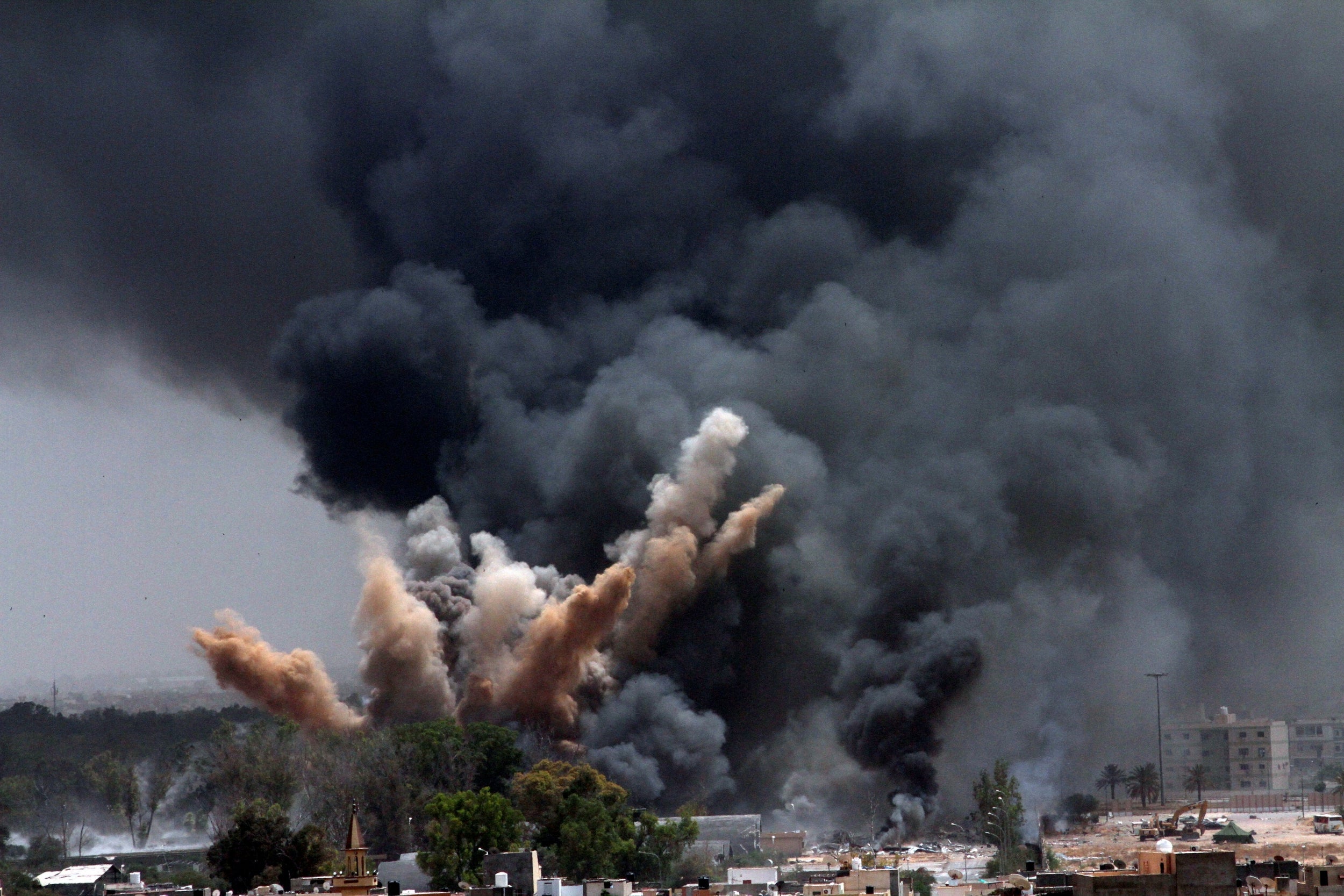US-led airstrikes have ‘killed at least 22,000 civilians’ in Middle East and Africa over past 20 years
Most of the civilians deaths happened during occupations of Afghanistan and Iraq

At least 22,000 civilians have been killed by US-led airstrikes in a number of countries in the Middle East and Africa over the last two decades of the “forever wars”, according to an approximation by a conflict monitor.
Ahead of the 20th anniversary of the 9/11 attacks on the World Trade Centre and the Pentagon, London-based organisation Airwars released its estimate of civilian deaths – that it said could be as high as almost 50,000.
Since 2001, when the US-led “war on terror” was launched after the attacks in New York and Washington DC, US actions likely killed at least 22,679 civilians, and as many as 48,308, according to Airwars.
The numbers take into account civilians that died during occupations of Afghanistan and Iraq, as well as bombing campaigns against the Islamic State in Iraq and Syria (Isis), and targeted strikes in Libya, Pakistan, Somalia, and Yemen.
The deadliest year – when looking at the minimum total death toll – was 2003, when at least 5,529 civilians were reported to have been killed by alleged US strikes, almost all during the invasion of Iraq.
The next deadliest year was 2017 – Donald Trump’s first year as US President – when at least 4,931 civilians were likely killed, the vast majority in alleged coalition bombing of Iraq and Syria.
When looking at the maximum possible death toll, the deadliest year was 2017. Airwars said that as many as 19,623 civilians were killed by US or coalition strikes that year against Isis.
The vast majority of civilian harm – 97 per cent – occurred during the occupation of Iraq between 2003 and 2009, the 20-year-long occupation of Afghanistan, and the bombing campaign against Isis militants.
The Taliban’s return to power last month saw the official end of the US occupation of Afghanistan after all troops withdrew last week.
The occupation’s peak was in 2011, when more than 100,000 US troops were stationed there. In Iraq, troops numbers peaked at 166,000 in 2007, though forces withdrew by 2011.
The report from Airwars cited data from several sources, as the US Department of Defense does not publish full counts of civilian casualties recognised by the agency.
Airwars cites statistics from the United Nations Assistance Mission in Afghanistan, Bureau of Investigative Journalism, The Nation, and the volunteer project Iraq Body Count.
The Independent has contacted the US Defense Department for comment on the Airwars report.
In recent days, officials have stressed that the US military goes to great lengths to avoid civilian casualties during operations.
An official with US Central Command told Airwars that “the information you request is not immediately on hand in our office as it spans between multiple operations/campaigns within a span of between 18 and 20 years” when asked about obtaining data for the report.
“No military on the face of the earth works harder to avoid civilian casualties than the United States military,” Pentagon spokesman John Kirby said during a news conference when asked about the possibility of civilian casualties in the final Kabul strike, which he did not dispute.
“We take it very, very seriously. And when we know that we have caused innocent life to be lost in the conduct of our operations, we’re transparent about it.”
US President Joe Biden has vowed in recent days that just because US ground troops have exited Afghanistan does not mean that America has ceased pursuing Isis-K and other militant groups, leaving open the possibility of more airstrikes and the devastation that typically follows.
“To Isis-K, we are not done with you yet,” Mr Biden said on Tuesday, while promising to enact a “tough, unforgiving, targeted, precise strategy” against the Afghanistan-based terror group.
Join our commenting forum
Join thought-provoking conversations, follow other Independent readers and see their replies
Comments



Bookmark popover
Removed from bookmarks